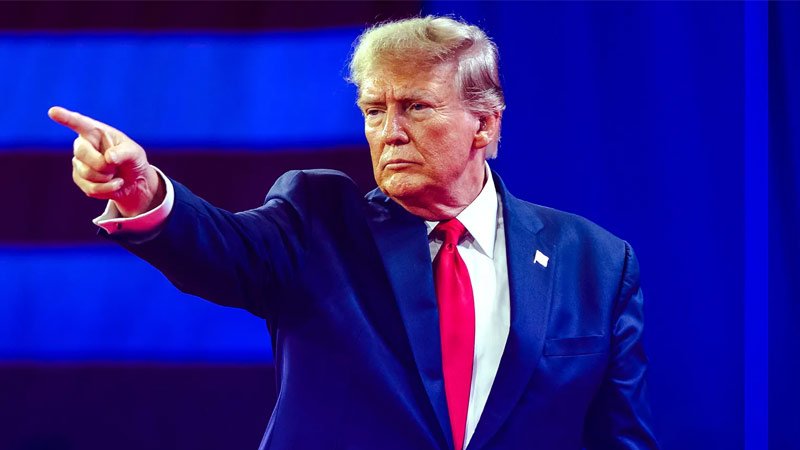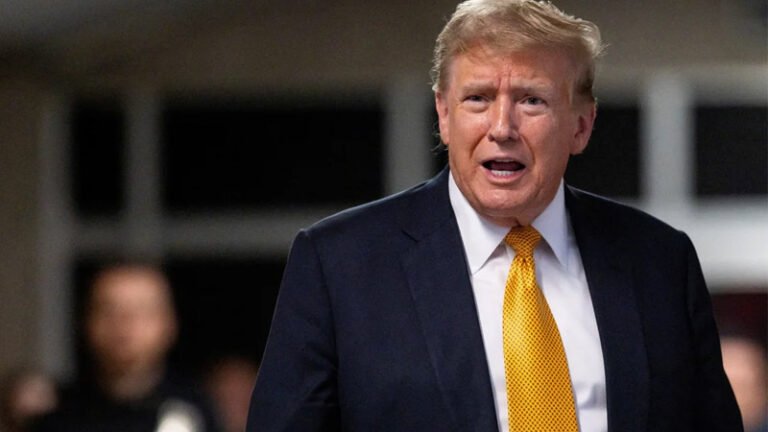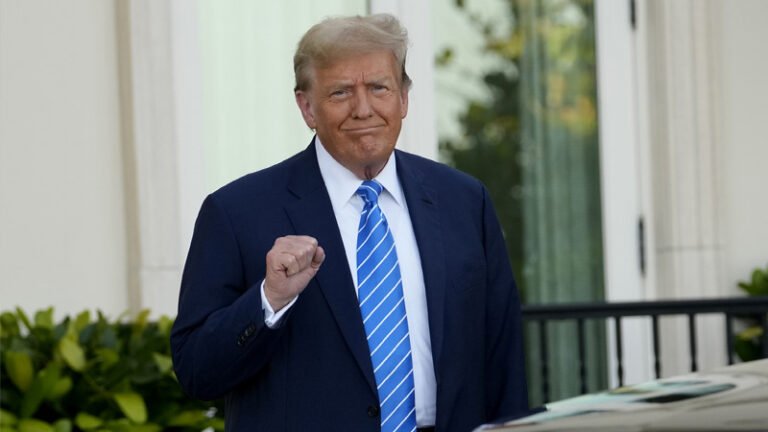
Blockworks
Former President Donald Trump made headlines once again during a visit to Michigan, a key swing state, where his campaign took an unexpected turn.
According to a report by CNN on Thursday, August 22, 2024, scheduled for a routine interview with The Detroit News on Tuesday, Trump abruptly canceled the session after being pressed on his claims about rising crime rates, a central theme of his latest speeches.
Standing under a banner that read “Make America Safe Again,” Trump focused his speech on what he termed the “Kamala crime wave,” a narrative he has used to accuse Vice President Kamala Harris and the Biden administration of failing to address a supposed surge in criminal activity.
However, when journalists sought to question him on the accuracy of these claims, Trump’s team abruptly ended the planned interview.
A representative from The Detroit News reported that Trump’s campaign aide informed them that the former president no longer had time for the interview after his speech.
This sudden change followed repeated requests from the newspaper to address the disparity between Trump’s assertions and official crime data.
Federal Bureau of Investigation (FBI) statistics and local Michigan crime data tell a different story than the one Trump has been promoting.
Since leaving office in 2021, national violent crime rates have decreased, returning to pre-pandemic levels. In Michigan, specifically, crime has not spiked as Trump suggested.
In fact, Detroit, often a focal point of Trump’s crime narrative, has seen its lowest number of homicides since 1966, according to local police data.
Despite these facts, Trump continues to push the narrative of a crime wave, which resonates with a segment of his base but fails to align with the reality on the ground.
“Facts don’t matter when it comes to him,” said Democratic state Representative Tyrone Carter, a former sheriff. “It’s about telling a story that benefits you.” report from People.
This isn’t the first time Trump has dodged questions that challenge his narrative. His reluctance to engage with media outlets that confront him with factual inaccuracies has become a recurring theme in his post-presidency political strategy.
By avoiding these tough questions, Trump maintains control over his messaging, which is heavily focused on stirring up fear and reinforcing the loyalty of his supporters.
The cancellation of the interview in Michigan is seen by many as an attempt to avoid confronting inconvenient truths.
As Trump continues his campaign, his strategy appears to be centered on delivering a one-sided narrative to his supporters while dismissing any counterarguments or data that contradict his claims.
Trump’s actions in Michigan highlight a broader issue in American politics: the growing divide between political rhetoric and factual accuracy.
As the 2024 election approaches, this divide is likely to widen, with candidates from both parties crafting messages that appeal more to emotions than to facts.
For Trump, this means doubling down on themes like crime, immigration, and the economy, even if the data doesn’t support his claims.
As Trump moves forward with his campaign, it remains to be seen whether his avoidance of tough questions will help or hinder his efforts to return to the White House.
What is clear, however, is that his strategy is not about engaging in a factual debate but rather about reinforcing the beliefs of his base, even if it means dodging the truth.





